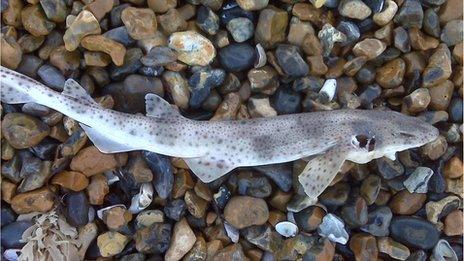Safe to swim in sea, says expert after suspected shark attack
- Published
- comments
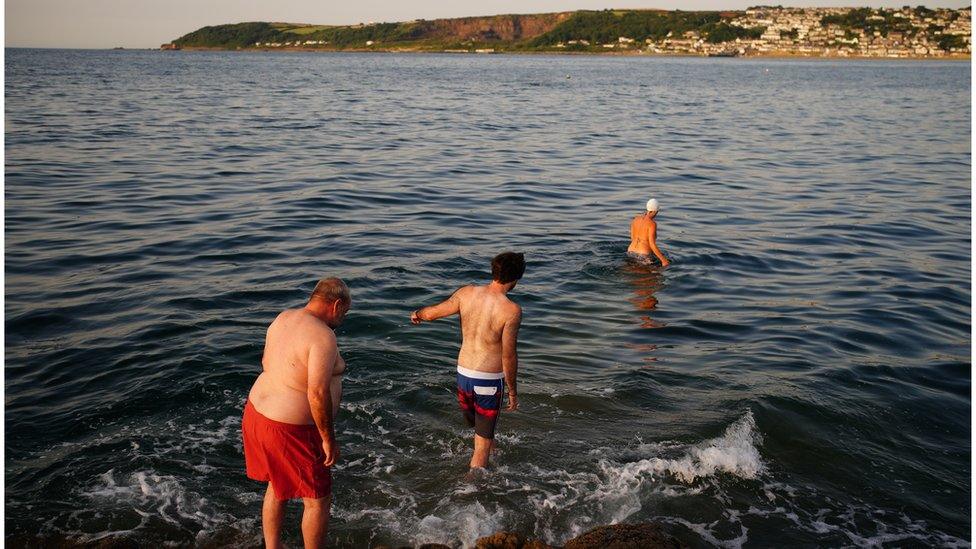
Swimmers take a dip at Penzance: People should continue enjoying the sea said marine biologist Hannah Rudd
Sea swimmers should not be deterred from having a dip, an expert has said after a suspected shark attack off the Cornwall coast.
Marine biologist Hannah Rudd said the incident during a snorkeling trip was an "incredibly rare event".
Organisers Blue Shark Snorkel said a person was injured on a group dive and walked off the boat for treatment.
The victim said in a statement it was a "freak event" on 28 July and sharks should not be judged by it.
The snorkeler was taken to the Royal Cornwall Hospital in Truro for treatment, South West Ambulance Service said.
Ms Rudd told BBC Breakfast: "I don't think this should stop anyone from getting in the water this summer.
"Please go out and enjoy the beaches responsibly and enjoy the sea in all its salty goodness."
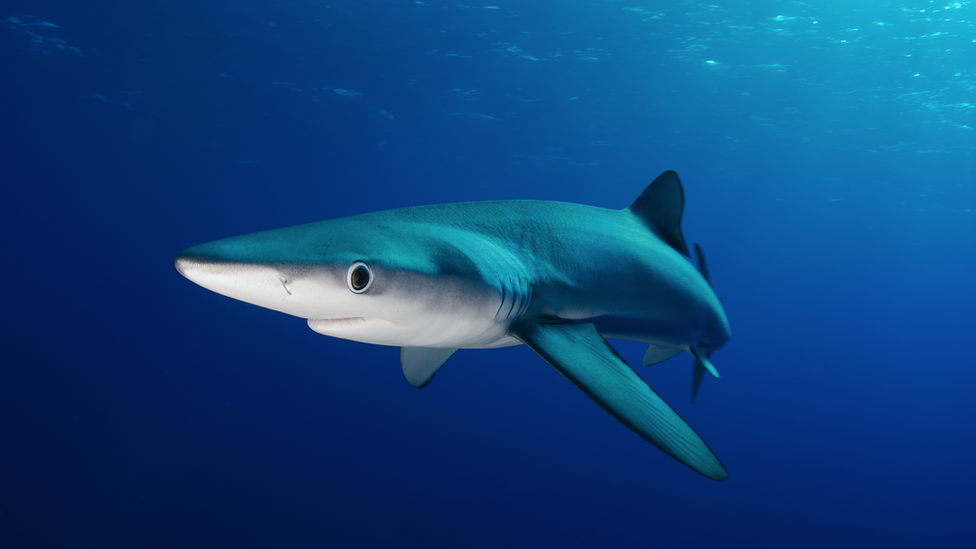
Blue sharks mainly feed on small fish and squid
She encouraged anyone interested in getting "up close" with sharks to "give it a try" with a professional operator.
She added that although "you are entering a wild environment with an apex predator", it was "important to stress" how rare attacks were.
"I'm sure the dive master there will give you a briefing on the code of conduct," she said.
"That will include keeping a safe distance, not touching unnecessarily, not chasing them and if you feel unsafe in the water just alert your dive master and they will safely remove you from the water."
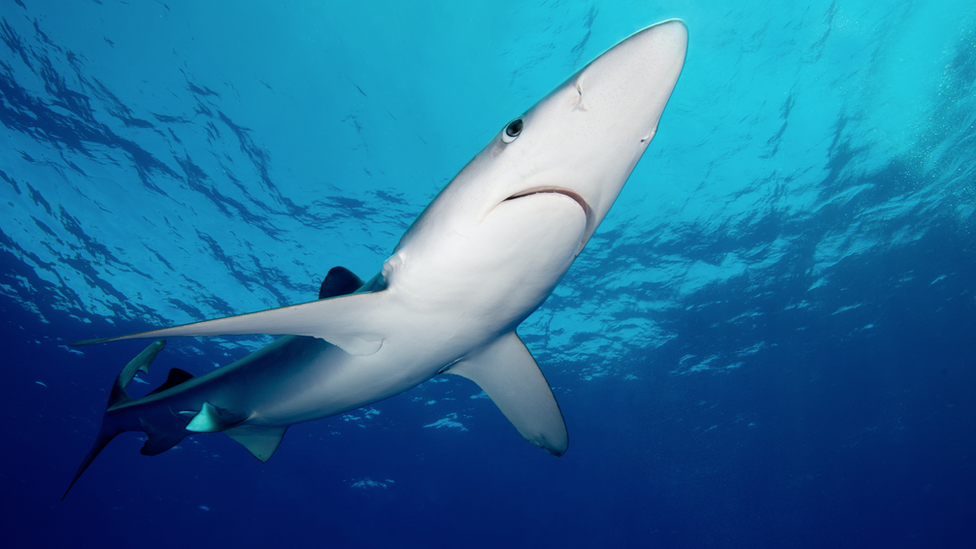
Blue sharks are among 40 species of sharks in UK waters
Being in the water with "these highly majestic" animals was an "absolutely incredible experience", she said.
"Despite this incident they [blue sharks] are really good role models for challenging the stereotypes that sharks have endured for decades."
The UK had about 40 species of sharks in its waters, she said.

Have you been affected by any of the issues raised here? Please email: haveyoursay@bbc.co.uk, external.

Ms Rudd said climate change had brought "shifting distributions of sharks around the world", with "more apex predators in our waters but not to a degree that anyone should worry about".
"I think it's important to stress that just because there's a change in distribution it does not mean that there's a change in abundance necessarily," she said.
"And a lot of these species are highly under threat from human activity such as commercial fishing."
Matt Slater from Cornwall Wildlife Trust said: "All the people on board these trip boats sign disclaimers and they know there is a tiny risk but it could happen.
"Unfortunately in this case it has happened, but I don't think there's any reason for anyone to think this is any more dangerous an activity than it ever has been."
Blue sharks visit the UK during the summer months from the Caribbean, and are known to mainly feed on small fish and squid, but have been known to attack seabirds and other small sharks, according to the Wildlife Trusts.
UK-based charity the Shark Trust said there have been no "unprovoked" shark bites in British waters since 1847, when records began.
Related topics
- Published2 August 2022
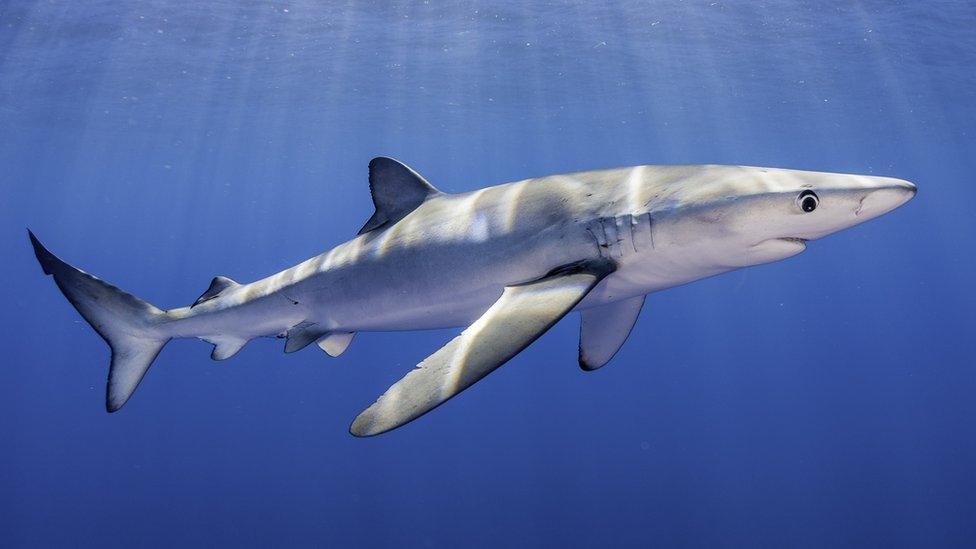
- Published7 June 2017
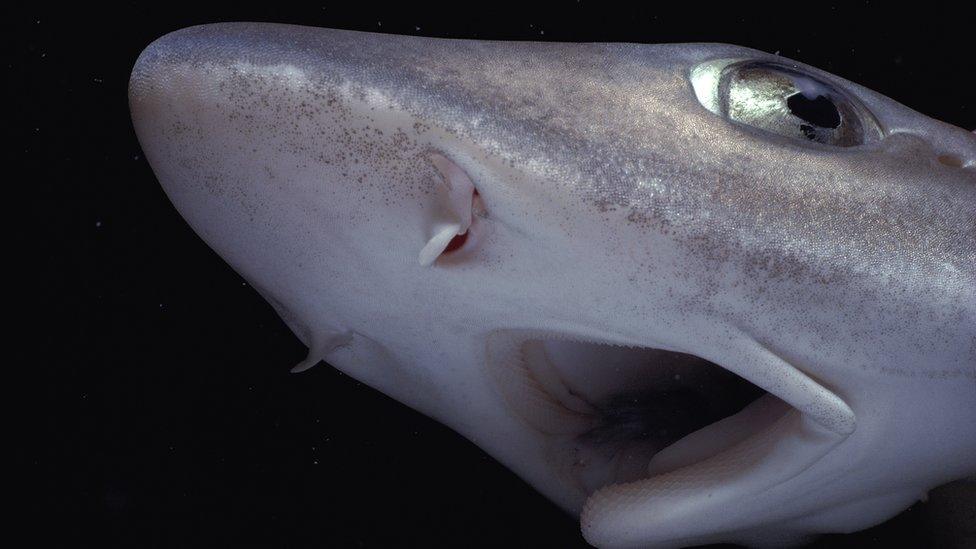
- Published19 April 2017
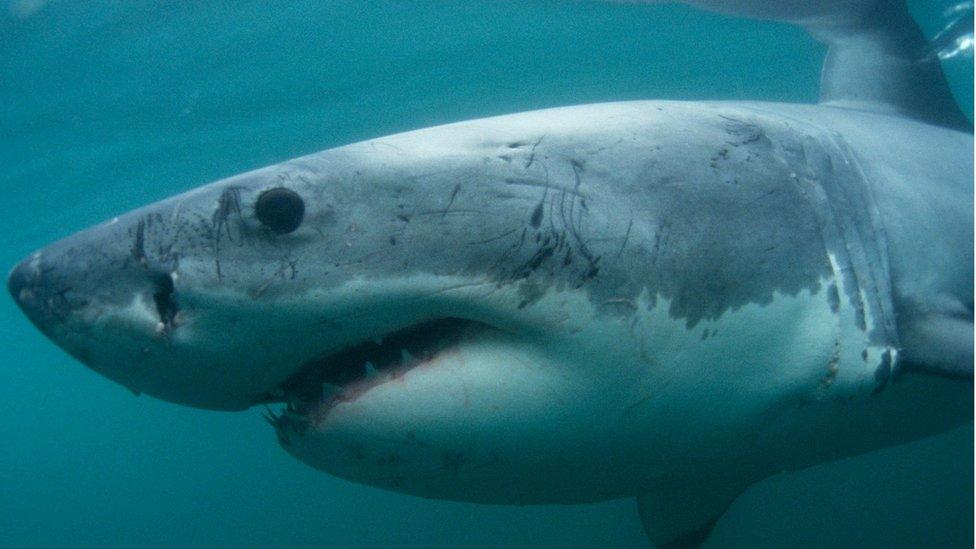
- Published2 March 2017
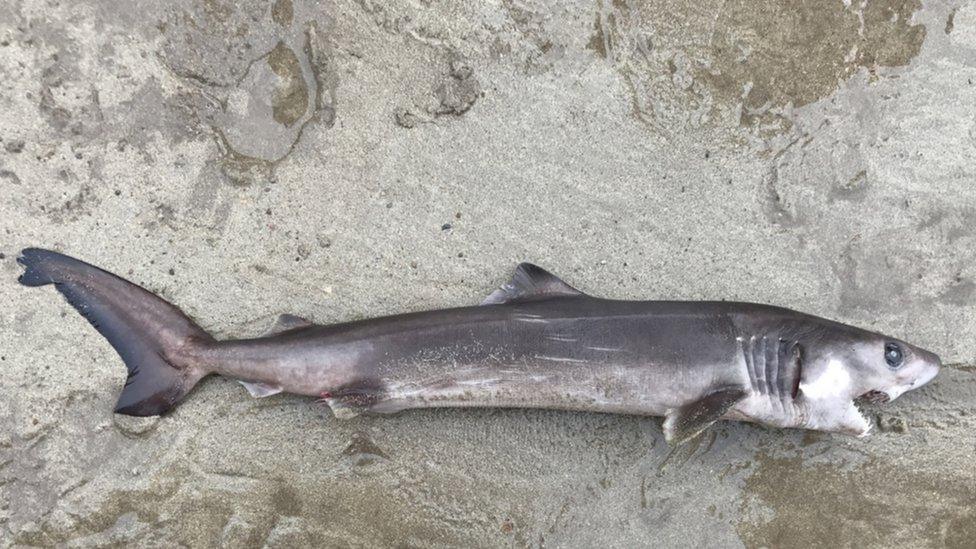
- Published22 January 2017
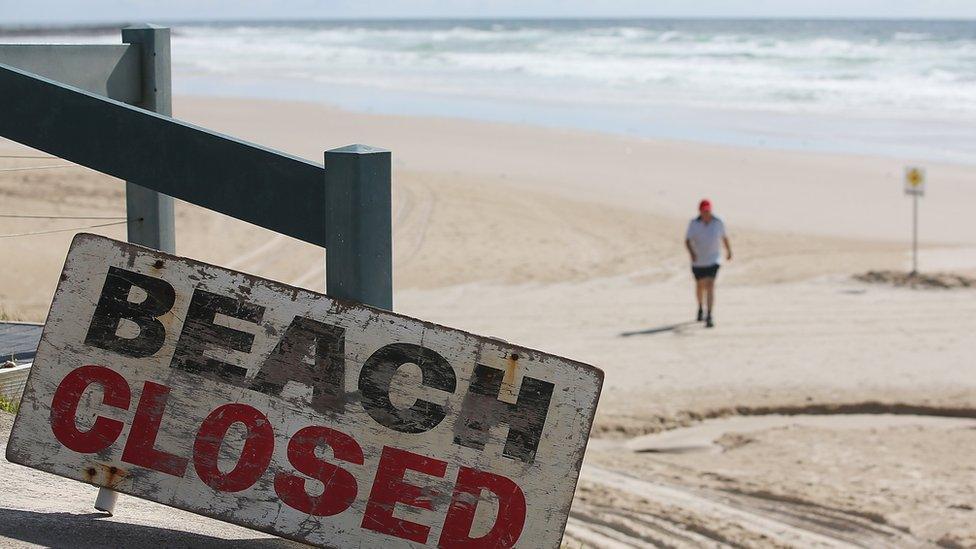
- Published17 January 2017
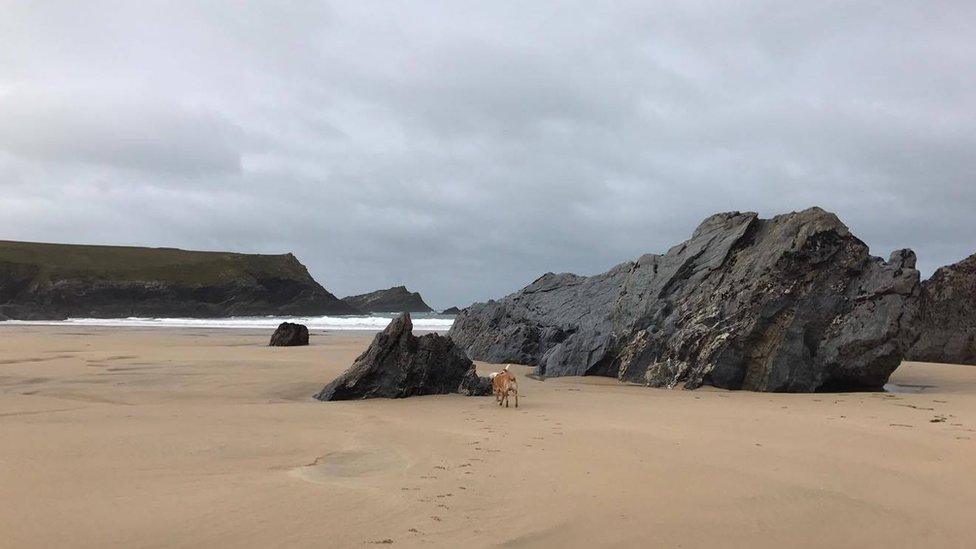
- Published31 August 2015
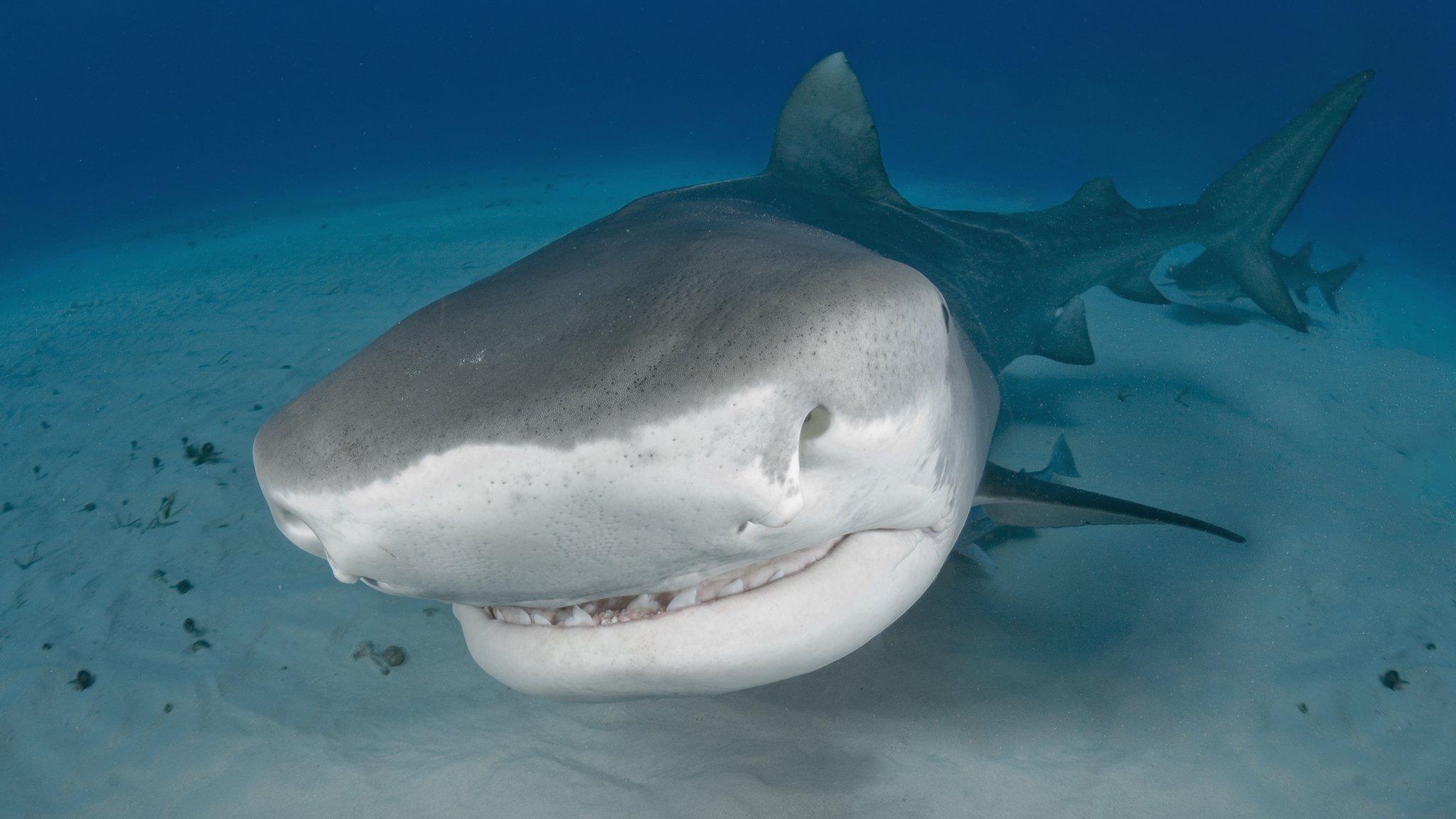
- Published19 November 2013
